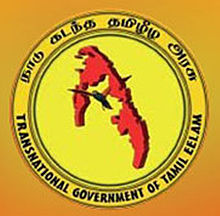In 2019, five British based members of the Transnational Government of Tamil Eelam, an organisation banned in Sri Lanka, but legal in the UK, appealed to the Home Secretary to remove the Tamil Tigers from the list of organisations proscribed by the Terrorism Act 2000.
The Liberation Tigers of Tamil Eelam (LTTE) and the broader Tamil separatist cause have long been observable in the United Kingdom by those who care to look. Britain was an important source of funds for the Tamil Tigers, with Tamils donating millions from both legal businesses and criminal fraud. That money oiled the LTTE’s huge paramilitary machine, even after the international attention afforded by the 1991 assassination of Indian Prime Minister Rajiv Gandhi, and the 1993 murder of Sri Lankan President Ranasinghe Premadasa. Both died in suicide bombings, a tactic perfected by the LTTE. In 2007, media reports estimated over £30 million had been fraudulently raised for the Tamil Tigers in Britain via credit card scams at over 200 petrol stations. Photographs of the late LTTE leader Velupillai Prabhakaran may still occasionally be spotted behind the counter of corner shops owned by Tamil migrants, whilst the military defeat of the LTTE in 2009 was marked by hunger strikes and large protests in central London. The then Labour government, with David Miliband as Foreign Secretary, appeared deeply uncomfortable with the Sri Lankan government’s actions, whilst Colombo, seeing victory at hand in a decades-old conflict that had scarred the island, felt the former colonial power should mind its own business.
The Tamils were left equally exasperated when new Labour’s rhetoric about the need for a “ceasefire” and old standards about UN resolution, came to nothing. This was British diplomacy at its worst—unwilling to do much except stake out the moral high ground, then sit there, angering both sides and pleasing no one outside of a small section of its domestic audience. The Tamil cause, however, has not gone away. In 2019, five British based members of the Transnational Government of Tamil Eelam (TGTE, an organisation banned in Sri Lanka, but legal in the UK) appealed to the Home Secretary to remove the Tamil Tigers from the list of organisations proscribed by the Terrorism Act 2000. This makes membership of and support for, a long list of organisations, illegal, and is a core tool in the fight against terrorism. It also has considerable diplomatic value. Proscribing terrorist organisations who may have a determined presence in a particular country, but a marginal one in Britain, shows a degree of solidarity for nation states wrestling with those who use violence to advance their aims. It can also act as a salve—in recent years, the UK authorities have made much of the proscription of several far-right organisations. Although their bark appears considerably worse than their bite, dealing with fascists in this manner does the police no harm in their outreach work with minority communities.
Having been unsuccessful in 2019, the TGTE this year returned to court. Evidence from British counter-terrorism officials heard by the Proscribed Organisation Appeal Commission, stressed that whilst the LTTE had been defeated in Sri Lanka in 2009, its international networks remained largely intact. They have never renounced violence. We can also add here that the type of gestures, statements or decommissioning from paramilitary organisations which characterised the end of armed conflicts in places like Northern Ireland or South Africa, appear absent. Arrests of LTTE operatives in Sri Lanka and India, and armed actions in Sri Lanka by individuals identified previously as Tamil Tigers, suggest an organisation that still sees utility in illegal activities. It was the view of the judges hearing the TGTE appeal, however, that the standard of evidence “requires the organisation itself to commit or to participate in terrorism” and that there are questions as to whether the LTTE has the capacity to do so. Evidence supplied from the Sri Lankan authorities was found to be weak. At the time of writing, the LTTE remains on the UK government’s list of proscribed organisations, but with an appeal against this to follow.
Diplomatically, this puts Britain in a difficult position. Both India and Sri Lanka vigorously oppose any relaxation of the law against the LTTE. Indeed, a Foreign and Commonwealth Office (FCO) submission to the appeal hearing indicated British diplomacy would be weakened if the LTTE were to be legalised. Here we see some of the challenges of counter-terrorism in liberal democracies—the separation of powers between the judiciary and the executive leads to potentially awkward decisions unlikely in a society lacking the checks and balances of the British system. That the UK must deal with such questions is also a measure of its success—post-colonial Britain remains a society people wish to move to, and where having done so, they may exercise their political freedoms.
Reasoned judgement, however, suggests Home Secretary Priti Patel would be unwise to give the LTTE free rein. To have people organising politically on our streets, from an organisation who as recently as 1991 and 1993 murdered the democratically elected leaders of political allies, appears unwise without any recantation of terrorism. The openness of the United Kingdom, and London’s standing as the global city par excellence, ensures that it is not just the LTTE who would wish to organise openly in the capital. We have been here before—in the years prior to the Terrorism Act, the French security services invented the sobriquet “Londonistan” to describe the city which hosted so many exiled terrorist supporters. The LTTE’s threat is regional, and they lack the global ambitions of the jihadists. But it is to be hoped for our sakes, and our relations with India and Sri Lanka, that the legal process launched by the TGTE is ultimately unsuccessful.
Dr Paul Stott is a writer and commentator based in the UK. He tweets @MrPaulStott

